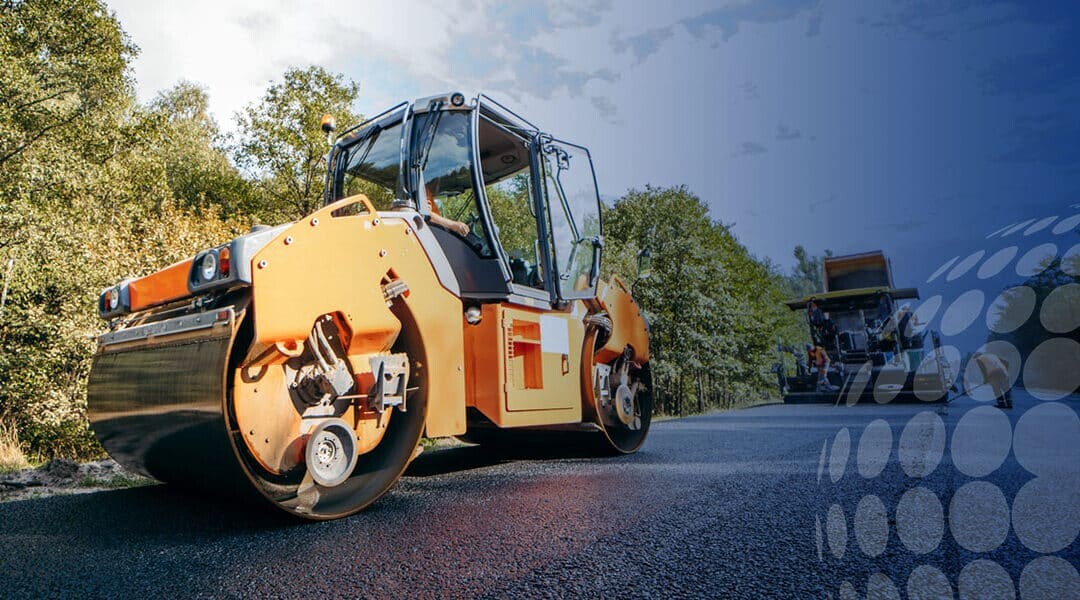By Angus Frost | Senior IT Consultant
The 2024 World of Asphalt Show and Conference, held in the city of Nashville, Tennessee, was a significant gathering for professionals from the asphalt, highway maintenance, and traffic safety industries. Taking place at the spacious Nashville Convention Center, this annual event attracted thousands of attendees ready to engage with over 450 exhibitors and multiple industry education sessions. The following are some of the key takeaways from the event.
Technological Advancements
A standout feature of the conference was the emphasis on technological innovation for equipment. New machinery and technologies that enhance efficiency and sustainability were on full display. Innovations included more fuel-efficient asphalt mixers, advanced paving equipment, and an increase in electric powered equipment, all showcasing the industry’s shift towards greener solutions. However, supply chain issues continue to challenge the industry impacting both equipment manufacturers and parts suppliers equally. Maintaining equipment efficiently to maximize its useable lifecycle was one of the areas of focus among educational sessions.
Emphasis on Sustainability
Sustainability was a central theme throughout the event, reflecting the industry’s growing commitment to environmental stewardship. Numerous sessions and exhibits focused on recycling old pavement materials to reduce waste and innovative materials like warm-mix asphalt that can be applied at lower temperatures, significantly reducing energy consumption and emissions. These practices are not only environmentally beneficial but also economically advantageous by lowering material and operational costs.
Educational Sessions
The educational component of the World of Asphalt 2024 was robust, with over 120 learning sessions that catered to various experience levels and specialties. These sessions covered a vast range of topics, from the technical aspects of asphalt composition and application techniques to best practices in project management and workforce development. Seasoned industry experts shared their knowledge and experiences, offering attendees actionable insights and skills to implement immediately in their daily operations. AI and IoT featured heavily in several sessions. AI was being introduced in multiple areas, from human/obstacle detection on equipment to help prevent worker injuries, analysis of existing conditions to automate the identification of road and other infrastructure repair/replacement needs, to generative AI being used to provide “virtual expert” content to contactors looking for information on a specific topic. IoT was featured heavily as a tool to help manage and maintain equipment, extending its lifecycle by identifying areas of wear and tear earlier in time for them to be fixed before major damage occurred.
Regulatory Updates
Regulatory updates were also a significant focus, with sessions dedicated to discussing recent changes in laws and standards that affect the industry. These discussions were crucial for professionals to understand new compliance requirements and environmental regulations. Expert panels included policymakers and legal experts who provided insights into the regulatory landscape and offered guidance on navigating these changes effectively. With an increasing focus on reducing greenhouse gas emissions (GHG) in the coming years, processes and technologies to help identify and reduce carbon emissions featured heavily.
Case Studies and Real-World Applications
The conference also highlighted several case studies demonstrating the real-world application of new technologies and techniques. These case studies provided a practical perspective on how different companies have successfully implemented new practices, what challenges they faced, and the outcomes of their initiatives. These included sessions on implementing a zero-injury safety culture, to using intelligent compaction on rollers. During the safety sessions I attended, the common theme was that most safety incidents were behavioral rather than situational (due to unsafe working conditions). As expected, one company identified that most incidents tracked occurred with those workers in their first year of working on a jobsite.
Fragmented Software
While many software vendors showed enhancement to existing products, and a broad range of software was present from scale ticketing to equipment maintenance, the industry remains fragmented. Much of the software available is based on point-based solutions rather than comprehensive platforms, requiring contractors to stitch applications together to manage their project lifecycles. Among the IoT vendors, many of the sensors are designed to only monitorcertain pieces of equipment or even just certain parts of a single piece of equipment without providing a comprehensive view. For now, the software space remains fragmented.
Conclusion
The 2024 World of Asphalt in Nashville was a comprehensive and enlightening experience that underscored the dynamic and innovative nature of the asphalt industry. With a strong emphasis on technological advancement, sustainability, and continuous education, the conference provided a wealth of knowledge to enhance the practices and careers of its participants. At the same time, opportunities exist for continuous improvement. Material and labor costs in the industry continue to rise, yet the productivity remains about the same as it has in previous years. Contractors will need to focus on areas of efficiency gain to remain competitive in the industry.

